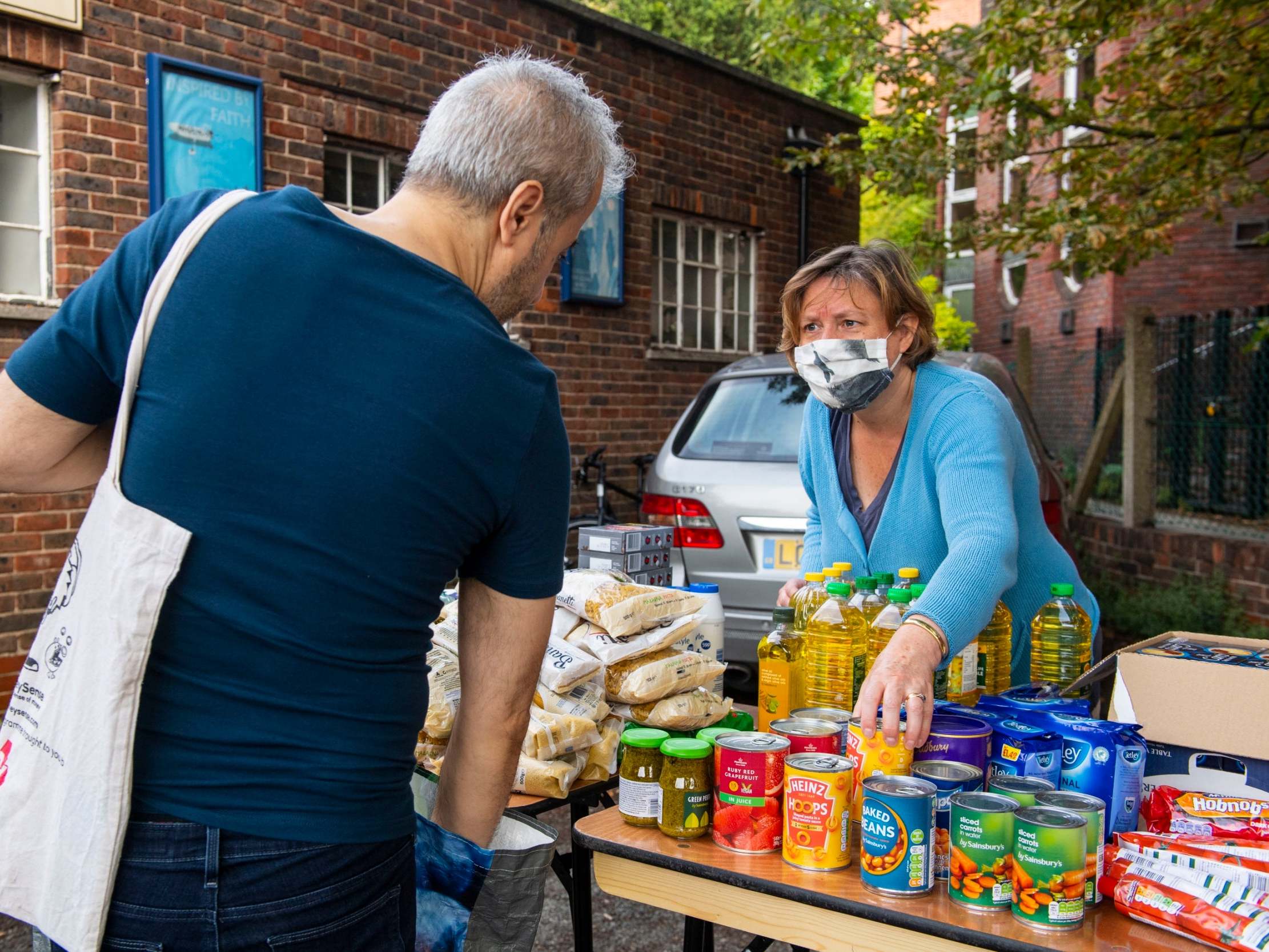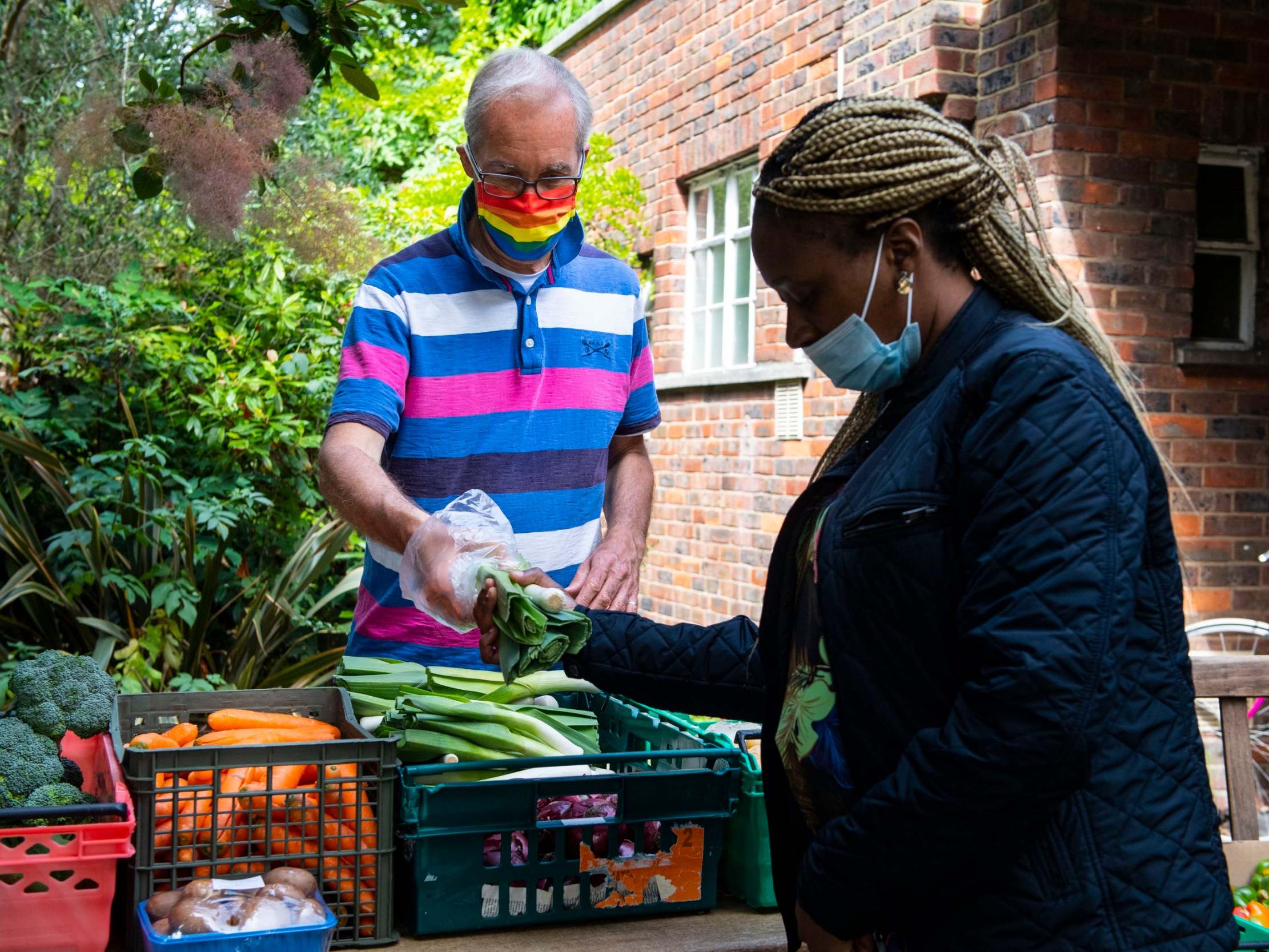Help the Hungry: Destitute families struggling to feed themselves are helped by our campaign
Twenty-seven-year-old woman due to give birth and stuck in hotel room among those dependent on food parcels

Your support helps us to tell the story
From reproductive rights to climate change to Big Tech, The Independent is on the ground when the story is developing. Whether it's investigating the financials of Elon Musk's pro-Trump PAC or producing our latest documentary, 'The A Word', which shines a light on the American women fighting for reproductive rights, we know how important it is to parse out the facts from the messaging.
At such a critical moment in US history, we need reporters on the ground. Your donation allows us to keep sending journalists to speak to both sides of the story.
The Independent is trusted by Americans across the entire political spectrum. And unlike many other quality news outlets, we choose not to lock Americans out of our reporting and analysis with paywalls. We believe quality journalism should be available to everyone, paid for by those who can afford it.
Your support makes all the difference.Poverty-stricken families in Britain have spoken about living in a state of destitution during the coronavirus crisis – totally dependent on food parcels to survive.
Refugees and asylum seekers without any access to state support have told The Independent of their suffering in recent months – as our Help the Hungry appeal partner The Felix Project provides them with emergency supplies.
Hannah*, 27, is more than eight months pregnant and is currently living in a hotel room in London’s Earl’s Court area arranged by the Home Office.
The Eritrean national became homeless when the pandemic came along, no longer able to stay at the home of a friend. She is now waiting on the outcome of a fresh asylum application – leaving her unable to access any benefits.
“It feels very cramped and very noisy in this hotel,” said Hannah. “It’s been such a difficult time – so stressful. I’m relying on the help of the charities for the food I need. I go to a friend’s house to make proper meals with the fresh food I get. It keeps me going.”
Hannah’s solicitor has urged the Home Office to provide somewhere more suitable for her and the baby when she gives birth later this month. “I hope I can get some accommodation of my own soon,” she said.
“I need some support. I just want to be able to take care of my baby properly.”
Hannah has been getting those weekly food parcels from West London Welcome – a support group supplied with fresh produce and canned goods by the food surplus charity The Felix Project.
West London Welcome said foreign students, as well as refugees and asylum seekers, are also falling foul of the government’s no recourse to public funds (NRPF) policy – which prevents some migrants accessing benefits, depending on their immigration status.

Joanne MacInnes, co-founder of the group, said: “We’ve seen some students, who had been allowed to work up to 16 hours a week, who lost their jobs during the pandemic and suddenly find themselves with no access to anything. They’re completely destitute.”
The amount of food supplied by Felix tripled from 20 to 60 crates a week after lockdown began. “It’s hugely appreciated,” said MacInnes. “The work they’re doing for so many groups is amazing.”
More than 500 university students, lecturers, MPs, trade unions and migrant rights organisations have written to the home secretary Priti Patel calling on her suspend the NRPF policy for international students, in order to prevent many from becoming destitute during the coronavirus crisis.
One student from Singapore told The Independent she had been forced to start skipping meals when her part-time job as a beauty consultant in London started assigning her fewer hours due to the pandemic.
While the Home Office has not revealed how many people have NRPF conditions attached to their immigration status, a recent report by Citizens Advice estimated nearly 1.4 million people in the UK cannot access public funds. The charity has seen the number of people seeking advice with NRPF problems double during the pandemic.
Hawa* and her six children, aged 10 to 19, have been left without access to benefits since losing temporary leave to remain in the UK. The family is living in one shared room at the home of a friend in north London, relying on food from Barnet Refugee Service.
“I have had some really bad times,” said the Somalian national. “It has not been easy moving from friend to friend. You cannot know what it is like to have no money, no support. I must say I appreciated the food parcels so much. It’s helping my family survive.”
Hawa added: “My dream is to get status in this country so I am allowed to work and earn money and buy food for my children myself.”
Barnet Refugee Service – supplied with food by The Felix Project and funding from Barnet Council – is currently providing support to more than 150 people.
Farida Stanikzai, operations manager, said: “We do our best to help people with basic things they need, but when they are unable to work, or get benefits, and don’t have any firm legal status, life is made so difficult for them.”
Josie Naughton, chief executive of Help Refugees group, said: “We are seeing a dramatic rise in the number of people needing assistance who have no recourse to public funds. This policy was always inhumane and pushed people into destitution. The no recourse to public funds policy should be scrapped.”
A cross-party group of MPs from the work and pensions select committee has also called on the government to suspend NRPF rules during the crisis.
A government spokesperson said: “The Home Office takes the wellbeing of asylum seekers very seriously and anyone who needs it can apply for accommodation, receive meals, and access financial support.
“Extensive action has also been taken to support those with no recourse to public funds, such as rent protections, the Job Retention Scheme, the Self-Employed Income Support Scheme and allocating £750m for charities to support the most vulnerable. We are committed to protecting vulnerable people and are confident that we have measures in place to support those who have no recourse to public funds.”
The Independent in partnership with the Evening Standard is encouraging readers to help groups that are trying to feed the hungry during the crisis – find out how you can help here.
*Names have been changed to protect anonymity
Join our commenting forum
Join thought-provoking conversations, follow other Independent readers and see their replies
Comments